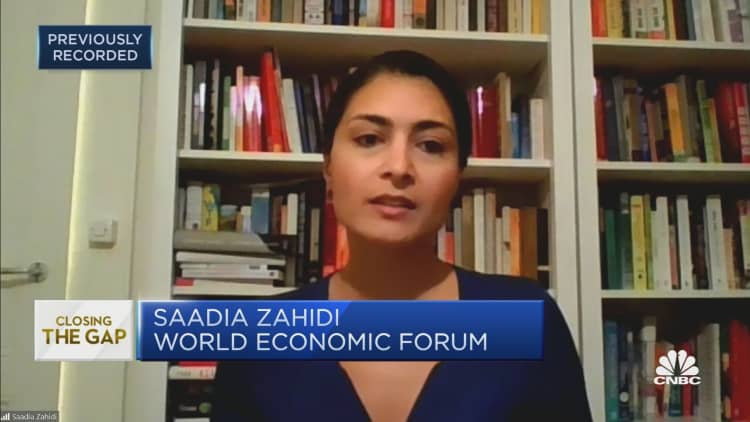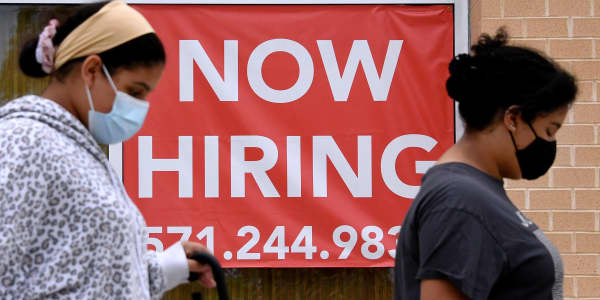
The World Economic Forum predicts it will now take 135.6 years to reach gender equality — as the pandemic set the world back by a generation, delaying parity by about 36 years.
Saadia Zahidi, a managing director at the World Economic Forum, told CNBC that "100 years to global gender parity was already not good enough — and now (it is) 136 years globally."
"The pandemic has had a massive impact, and essentially rolled back a lot of the progress that was made in the past," she told CNBC's "Capital Connection" on Wednesday.
If businesses want to have the … creativity and innovation that will get them out of the crisis, they need diversity, and so they need to think of this as a business investment as well.Saadia Zahidimanaging director, World Economic Forum
One reason why the gender gap has widened is that sectors hit hard by Covid-19 mostly employed women.
"Whether that's travel and tourism that's shut down globally, or (the) consumer and retail sector that has been impacted in so many countries, these are large employers of women," Zahidi said.
Another factor is that many women took on extra responsibilities at home during the lockdowns as schools closed.
"That has then meant a sort of a 'double shift' for women," she said.
The WEF said data from market research firm Ipsos suggest this "double shift" of paid and unpaid work contributed to an increase in stress, anxiety around job security and difficulty in maintaining work-life balance.
Role of governments and companies
Zahidi said governments have a "critical role to play" in closing the gender gap.
For example, she said authorities could invest in infrastructure to care for children and the elderly, which would help because such responsibilities fall to women in "traditional" homes.
Employers can also help women out of higher relative job losses and lower hiring rates in industries that are bouncing back, she added.
"If businesses want to have the … creativity and innovation that will get them out of the crisis, they need diversity, and so they need to think of this as a business investment as well," Zahidi said.






